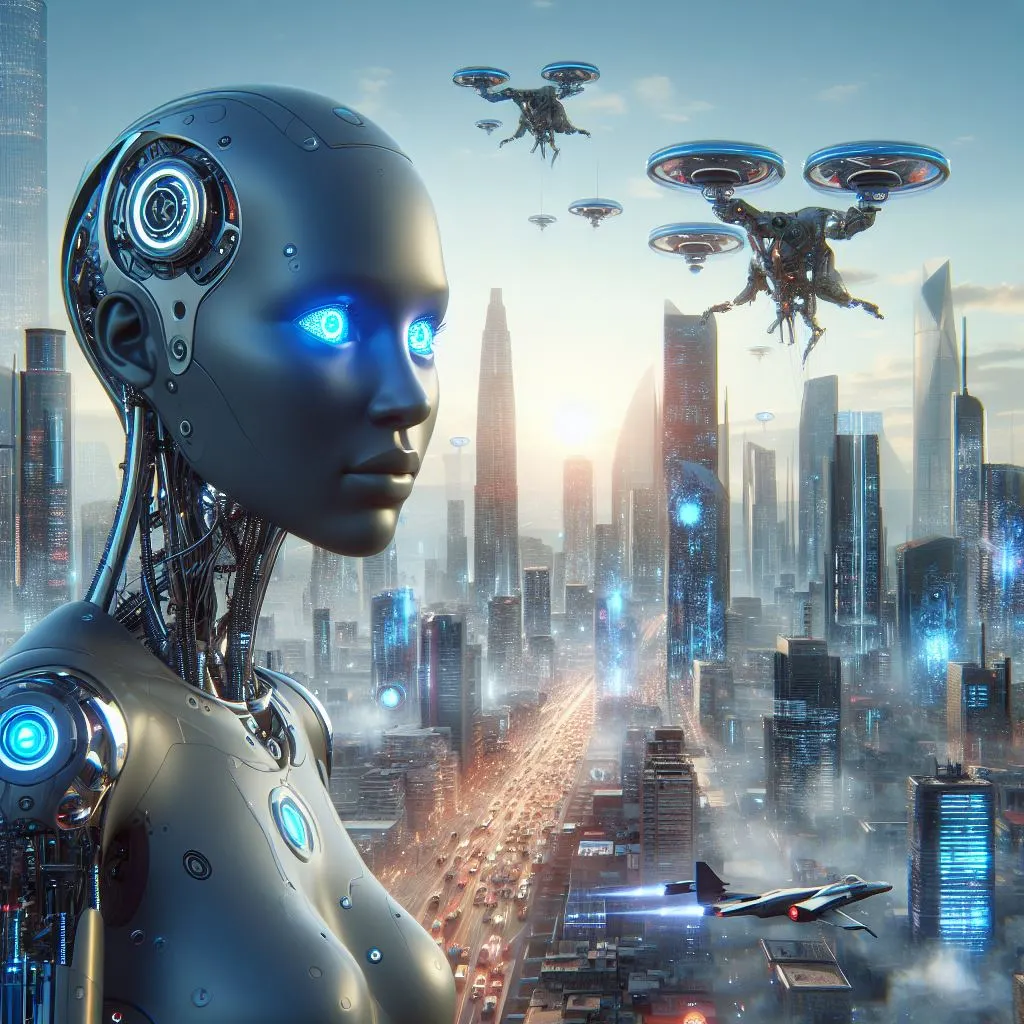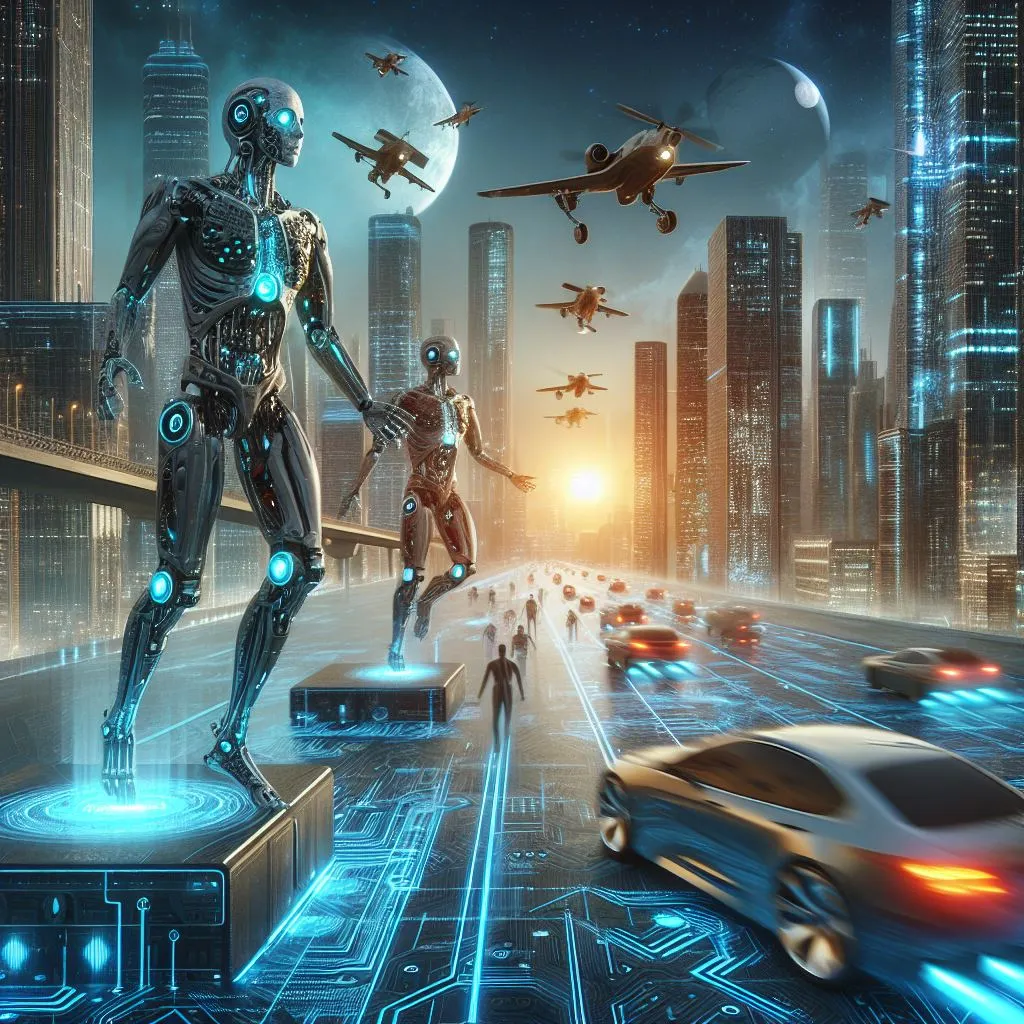AI Trends 2024 review: As we delve into the depths of the 21st century, the reality of a world dominated by Artificial Intelligence (AI) does not seem far-fetched. AI has already seeped into various sectors, reshaping how businesses operate and how people live. However, the journey of AI is just beginning, and its future prospects promise to be even more intriguing. This blog post will explore the potential trends in AI that are expected to spearhead the technological revolution in the near future.

Increasing Adoption of AI trends:
The first notable trend is the broadening adoption of AI across various industries. Businesses and organizations will increasingly incorporate AI into their operations to enhance efficiency, productivity, and decision-making. For example, AI-powered predictive analytics will aid in forecasting sales trends, customer behavior, and market fluctuations, enabling businesses to make informed strategic decisions.
AI trends in Healthcare:
Another trend to look out for is the application of AI in healthcare. AI can revolutionize healthcare by enabling early diagnosis, personalized medicine, and advanced research. AI algorithms can analyze patient data to predict health risks and recommend preventive measures, significantly improving patient outcomes.
AI and Automation:
Automation, powered by AI, is set to redefine job roles and work processes. AI-powered robots and software will take over repetitive tasks, freeing up human employees for more creative and strategic roles. This shift will necessitate a redefinition of job descriptions and the reskilling of the workforce.
Human-like AI:
Advancements in AI technology will lead to the development of more human-like AI. This will involve AI systems that can understand, learn, predict, and respond to human emotions. Such emotional AI will have widespread applications, particularly in customer service and mental health.
AI trends in Cybersecurity:
With the increasing digitalization of services, cybersecurity threats are on the rise. AI can play a crucial role in predicting and preventing cyber-attacks. Machine learning algorithms can analyze patterns and detect anomalies in data traffic, enabling proactive threat detection and mitigation.
AI trends and Big Data:
The role of AI in managing and interpreting big data will become increasingly crucial. AI systems can process vast amounts of data swiftly and accurately, providing insights that can drive strategic decision-making in businesses.
AI trends Ethics and Regulations:
As AI becomes more pervasive, ethical considerations and regulations surrounding AI use will become paramount. There will be increased focus on ensuring that AI systems are transparent, accountable, and do not perpetuate bias or inequality.
As we brace for an AI-driven future, it’s crucial to keep an eye on these trends. While AI promises numerous benefits, it also brings forth challenges that society must be prepared to handle. As such, it’s vital for stakeholders in government, business, and academia to collaborate and guide the development of AI in a direction that benefits all of humanity.

The future of AI is undoubtedly bright and filled with endless possibilities. As we continue to witness the evolution of this technology, we can only imagine the incredible advancements that lie ahead. Regardless of the uncertainties, one thing remains clear: AI is here to stay, and its impact will continue to be felt across all spheres of life.
References:
Keywords: Artificial Intelligence, AI trends, future of AI, AI in healthcare, AI and automation, human-like AI, AI in cybersecurity, AI and big data, AI ethics and regulations.
Harnessing the Power of AI in Marketing: A Comprehensive Guide
Introduction:
In the evolving world of digital marketing, Artificial Intelligence (AI) is no longer a futuristic concept but a transformative reality. As technology advances, so does the potential for leveraging AI to drive marketing strategies and provide companies with a competitive edge. This comprehensive guide delves into the significant role of AI in modern marketing, with a word count of 3000 words designed to provide a thorough insight into this fascinating subject.
1. AI and Personalized Marketing:
AI is revolutionizing the way businesses approach their customers by enabling personalized marketing. By analyzing consumer behavior, preferences, and purchase history, AI can help create personalized content, product recommendations, and targeted advertisements. This level of personalization enhances customer engagement and loyalty, significantly boosting conversion rates.
2. Predictive Analytics:
Predictive analytics is another powerful application of AI in marketing. AI algorithms can analyze past and current data to predict future trends and consumer behavior. This predictive insight allows marketers to strategize their campaigns effectively, increasing their return on investment.
3. AI and Content Creation:
AI has made significant strides in content creation. AI-powered tools can generate content like blog posts, social media posts, and even video content. This not only speeds up the content creation process but also ensures that the content is optimized for the target audience.
4. AI in Email Marketing:
AI can enhance email marketing strategies by automating the process of segmenting the audience, personalizing email content, and determining the optimal time to send emails. Moreover, AI can predict how different email formats and subject lines will perform, allowing marketers to optimize their email campaigns.
5. AI-Powered Chatbots:
AI-powered chatbots are transforming customer service in marketing. Chatbots can provide instant responses to customer queries, resulting in improved customer satisfaction. Additionally, chatbots can gather valuable customer data, which can be utilized to refine marketing strategies.
6. Social Media Monitoring:
AI can streamline social media monitoring by analyzing user comments, reviews, and posts to gauge public sentiment about a brand. This can help brands manage their online reputation and respond to customer feedback promptly and appropriately.
7. AI and SEO:
AI plays a crucial role in Search Engine Optimization (SEO). AI-powered SEO tools can analyze website data, suggest keyword optimization, and predict changes in search engine algorithms. This helps businesses improve their website’s ranking on search engine results pages (SERPs), driving more organic traffic to their website.
8. Programmatic Advertising:
AI has revolutionized advertising through programmatic advertising. This involves using AI to buy and sell ad inventory in real-time, which increases the efficiency of ad campaigns and reduces costs.
Conclusion:
The integration of AI in marketing is reshaping the way businesses interact with their customers, providing unprecedented opportunities to engage audiences and maximize ROI. As AI technology continues to evolve, its application in marketing will only expand, offering even more innovative ways to connect with consumers.
However, as with any technological advancement, businesses must implement AI responsibly and ethically, ensuring that customer data is secure and privacy is respected. By doing so, businesses can leverage the power of AI to enhance their marketing strategies while maintaining the trust and loyalty of their customers.
The future of AI in marketing is undoubtedly exciting, and as we continue to navigate this digital era, embracing AI is no longer an option but a necessity for businesses to thrive.
Keywords: AI in marketing, personalized marketing, predictive analytics, AI in content creation, AI in email marketing, AI-powered chatbots, social media monitoring, AI and SEO, programmatic advertising.